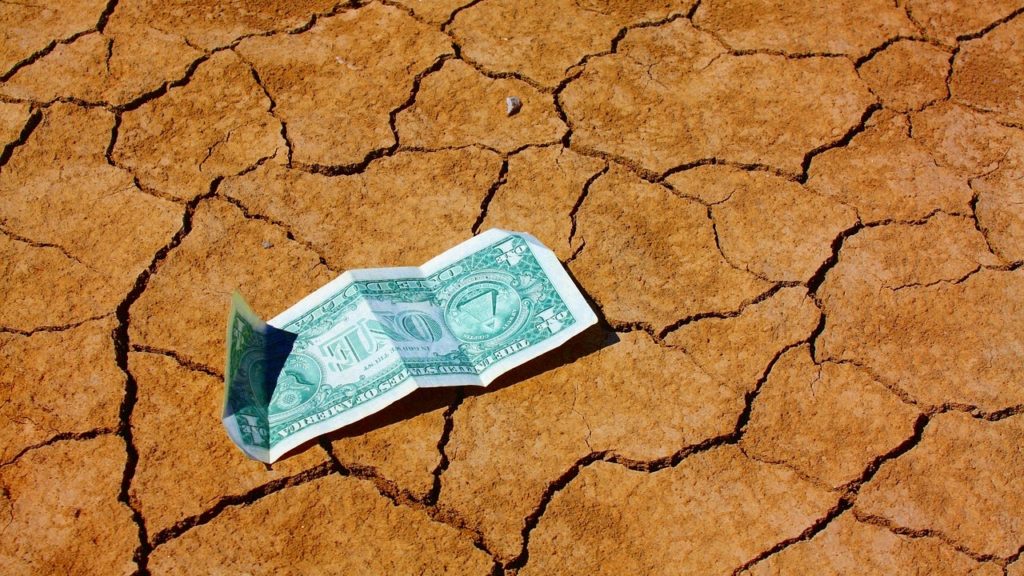In Another Potential Blow to Dollar Dominance, Kenyan President Urges Shift Away from Greenback in African Trade
Dollar doubts continue to grow, threatening the greenback’s perch at the top of the global financial system.
Last week, Kenyan President William Samoei Ruto suggested that African nations should shift away from using the dollar in intercontinental trade.
Ruto made the comments during an address before the Djibouti parliament, saying the two countries should abandon reliance on the dollar in trade.
How is US dollars part of the trade between Djibouti and Kenya? … Why is it necessary for us to buy things in Djibouti and pay in dollars? Why? There’s no reason.”
Ruto emphasized that he is not “against” the US dollar.
We just want to trade much more freely.”
He pointed out that the African Export–Import Bank (Afreximbank) provides a mechanism enabling traders on the continent to engage in trade using local currencies and said Kenya supports using a Pan-African payment and settlement system administered by the bank.
The Pan-African Payments and Settlement System (PAPSS) was launched in January 2022.
Ruto made similar comments in Nairobi earlier in the month
We are all struggling to make payments for goods and services from one country to another because of differences in currencies. And in the middle of all these, we are all subjected to a dollar environment.”
He went on to say that getting rid of the dollar middleman would allow African businessmen to concentrate on moving goods and services, “and leave the arduous task of currencies to Afreximbank.”
While the death of the dollar as the global reserve currency isn’t imminent, there is clearly a growing sentiment toward minimizing reliance on the US dollar worldwide.
For instance, last spring, China and Brazil announced a trade deal in their own currencies, completely bypassing the dollar. China also has dollarless trade agreements with Russia, Pakistan and Saudi Arabia.
Meanwhile, BRICS nations are reportedly working to develop a “new currency.” According to a Russian spokesperson, the BRICS nations are developing a strategy that “does not defend the dollar or euro” and that “a single currency” would likely emerge within BRICS, pegged to gold or “other groups of products, rare-earth elements, or soil.”
An important BRICS summit will happen in August.
Brazil, Russia, India, China, and South Africa make up the BRICS block. It accounts for about 40% of the global population and a quarter of the global GDP.
While BRICS influence remains relatively small, there is growing interest in the bloc. Russian Deputy Foreign Minister Sergey Ryabkov says that nearly 20 new countries have applied to join the BRICS alliance.
Ryabkov did not mention specific countries but said, “In our view, the Arab world and the Asia-Pacific region have been clearly ‘begging’ to join BRICS, as they have no representation there today.”
Former Goldman Sachs chief economist Jim O’Neill coined the BRIC acronym. In a recent paper published by Global Policy Journal, he urged the expansion of BRICS.
“The US dollar plays a far too dominant role in global finance,” he wrote. “Whenever the Federal Reserve Board has embarked on periods of monetary tightening, or the opposite, loosening, the consequences on the value of the dollar and the knock-on effects have been dramatic.”
It’s clear that many countries are trying to minimize their exposure to the dollar. Confidence in the greenback continues to erode thanks to the profligate borrowing, spending and money creation by the US government. America’s use of the dollar as a foreign policy weapon also makes many countries wary of relying solely on dollars.
This is a big problem for the US government.
Uncle Sam depends on the demand for dollars to underpin its profligate borrowing and spending. The only reason the US can get away with massive budget deficits and an ever-growing national debt to the extent that it does is due to the dollar’s role as the world reserve currency. It creates a built-in global demand for dollars and US Treasuries that absorb the money creation and maintain dollar strength. But what happens if that demand drops? What happens if BRICS develops its own currency and no longer needs dollars to trade?
If the demand for dollars tanks, the greenback’s value will quickly erode away. That means even worse price inflation for Americans. And in the worst-case scenario, it could collapse the dollar completely.





 Since Nayib Bukele became president of El Salvador, El Salvador has been in American media and global political discussion more than ever. While much of the attention focuses on Bukele’s mass incarceration of gang members and a decline in homicide of over 70%, Bukele has also drawn attention to his favoritism towards Bitcoin and how he […]
Since Nayib Bukele became president of El Salvador, El Salvador has been in American media and global political discussion more than ever. While much of the attention focuses on Bukele’s mass incarceration of gang members and a decline in homicide of over 70%, Bukele has also drawn attention to his favoritism towards Bitcoin and how he […] With gold hitting yet another awe-inspiring all-time high in the wake of Powell’s remarks reassuring markets (more or less) to expect rate cuts in 2024, a few analysts are pointing out risk factors for a correction — so is there really still room to run?
With gold hitting yet another awe-inspiring all-time high in the wake of Powell’s remarks reassuring markets (more or less) to expect rate cuts in 2024, a few analysts are pointing out risk factors for a correction — so is there really still room to run? Gold hit a new all-time nominal high, surpassing the previous record set in December of the previous year. The precious metal’s price reached approximately $2,140, indicating a robust and continuing interest in gold as a safe-haven asset, despite a rather peculiar lack of fanfare from the media and retail investors. This latest peak in gold […]
Gold hit a new all-time nominal high, surpassing the previous record set in December of the previous year. The precious metal’s price reached approximately $2,140, indicating a robust and continuing interest in gold as a safe-haven asset, despite a rather peculiar lack of fanfare from the media and retail investors. This latest peak in gold […] The gold price has been surging, with unprecedented central bank demand gobbling up supply. It has been a force to behold — especially as US monetary policy has been relatively tight since 2022, and 10-year Treasury yields have rocketed up, which generally puts firm downward pressure on gold against USD.
The gold price has been surging, with unprecedented central bank demand gobbling up supply. It has been a force to behold — especially as US monetary policy has been relatively tight since 2022, and 10-year Treasury yields have rocketed up, which generally puts firm downward pressure on gold against USD.  Total gold demand hit an all-time high in 2023, according to a recent report released by the World Gold Council. Last week, the World Gold Council (WGC) released its Gold Demand Trends report, which tracks developments in the demand for and use of gold around the world. Excluding over-the-counter (OTC) trade, 2023 gold demand fell slightly from 2022 […]
Total gold demand hit an all-time high in 2023, according to a recent report released by the World Gold Council. Last week, the World Gold Council (WGC) released its Gold Demand Trends report, which tracks developments in the demand for and use of gold around the world. Excluding over-the-counter (OTC) trade, 2023 gold demand fell slightly from 2022 […]